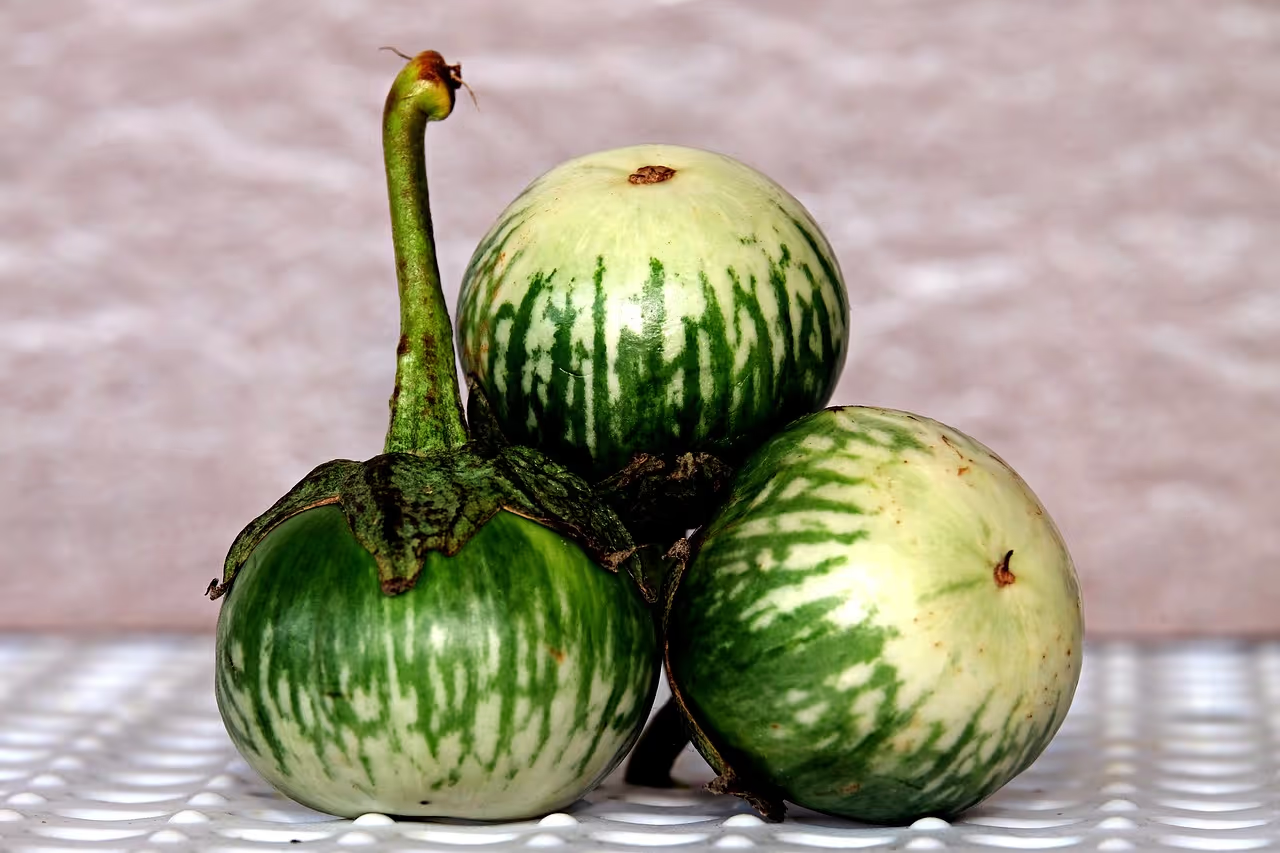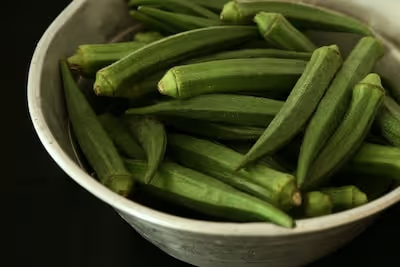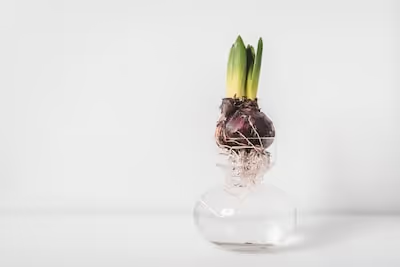Growing Thai Eggplant: A Gardener’s Essential How-To

Growing Thai Eggplant
Growing Thai eggplant requires warmth, regular watering, and soil rich in organic compost. Ensure plants receive full sun—six to eight hours daily—to boost vigorous growth. Start seedlings indoors, transplanting outdoors once nighttime temperatures stay above 60°F, and soon you'll be harvesting tender, flavorful Thai eggplants perfect for curries and stir-fries. Here's exactly how to pull it off.
Cheatsheet: Fast-Track Guide to Thai Eggplant
🌱 Best Climate & Soil
Tropical annual. Needs 65–95°F (18–35°C). Full sun (6+ hrs). pH 6.0–7.0. Well-draining, nutrient-rich soil.
🛠️ Tools and products you'll need
- Hand trowel
- Pruners
- Mulch & row cover
- Thai eggplant seeds
- Compost or balanced organic fertilizer
- Stakes (plants get heavy)
- Watering can or drip irrigation
- Neem oil/insecticidal soap (pests)
⚡ Fast Facts
- Harvest in 75–90 days from transplant
- One plant yields up to 5 lbs (2.3 kg)
- High in fiber, vitamin C, antioxidants
🌼 Seed Starting & Planting
- Start seeds indoors 8–10 weeks before last frost. Use moist seed mix, 75–85°F (24–29°C).
- Transplant when seedlings are 6–8" (15–20cm), after danger of frost. Space 18–24" (45–60cm) apart.
- Add compost or slow-release organic fertilizer at planting.
💧 Water & Feed
- Keep soil moist but never soggy
- Mulch to retain moisture & prevent weeds
- Side-dress with compost every 4–6 weeks
🍃 Prune, Support & Pest Control
- Stake early—branches get heavy with fruit
- Prune lower leaves for airflow
- Watch for flea beetles, aphids, spider mites; use neem oil if needed
🥗 Harvest & Nutrition
- Pick when fruit is lime-to-deep green, glossy, & 2–3" (5–8cm) wide
- Eat fresh or cooked—excellent for curries, grilling, pickling
- High potassium & chlorogenic acid (good for heart health)
🗝️ Self-Sufficiency Tips
- Save seeds from ripe fruits—dry well before storing
- Rotate crops yearly to prevent soil-borne disease
-
Growing Thai Eggplant: a Gardener’s Essential How-To
Growing Thai Eggplant scratches the itch for quick fruit, compact plants, and curries that actually taste like Bangkok night markets. I grow them tight, pick them small, and cook them fast.
Quick facts that save seasons
- Type: Solanum melongena, Thai round and long types, fruits golf ball to small lemon size.
- Days to maturity: 50 to 70 from transplant, quicker for round Thai types.
- Soil temp to plant out: 70 F to 75 F, 21 C to 24 C.
- Germination sweet spot: 80 F to 90 F, 27 C to 32 C.
- Spacing: 18 to 24 in, 45 to 60 cm, rows 30 to 36 in, 76 to 91 cm.
- pH: 5.8 to 6.5, with high organic matter.
- Water: 1 to 1.5 in per week, 25 to 38 mm, steady and deep.
- Sun: 8+ hours, heat loving but flowers stall in extreme heat.
- Container: 7 to 10 gal, 26 to 38 L, fabric pots excel for root oxygen.
- Support: stake or cage to keep fruit off soil and branches from splitting.
From seed to sturdy transplants
I sow seeds 8 to 10 weeks before last frost, with a seedling heat mat to hold 82 F to 85 F, 28 C to 29 C. Light stays strong for 14 to 16 hours and I brush the tops daily to toughen stems.
Once roots knit the plug, I pot up and feed a mild 100 to 150 ppm N solution. I harden off for a week, then plant out after nights hold 60 F, 16 C, with soil at 70 F, 21 C.
"Sow eggplant indoors 8 to 10 weeks before the last frost and set transplants after nights average 60 F." — University of Minnesota Extension
Soil recipe and feeding plan
I work in 2 to 3 inches, 5 to 8 cm, of compost plus a balanced, slow-release pre-plant like 5-5-5 at label rates. Thai types prefer steady potassium, so I side-dress at first bloom with a low N, higher K blend like 4-6-8.
Too much nitrogen gives jungle leaves and no curry. Keep pH near 6.2 for calcium uptake and fewer corky spots inside fruit.
Water and mulch for clean leaves and crisp fruit
Drip irrigation with a 1 gph emitter per plant keeps foliage dry and fruits firm. I aim for 1 to 1.5 inches, 25 to 38 mm, of water weekly and mulch with straw or black film to warm cool soils.
Wild swings cause blossom-end rot across nightshades. Keep moisture even and feed calcium only if soil tests show a shortage.
"Aim for about 1 to 1.5 inches of water per week, adjusting for heat and soil type." — USDA Home Garden guidance
Spacing, pruning, and staking that pays
In beds, I plant 20 inches, 50 cm, apart and tuck a bamboo stake early. I pinch the first burst of flowers until the plant is knee-high, which shifts energy to a stronger frame.
Thai eggplant branches freely, so I limit to 3 or 4 main stems in containers. Small cages make harvest faster and keep fruit clean.
Pollination and fruit set
Eggplant self-pollinates, yet I see better set with bumblebee traffic or a quick morning shake. Flowers abort when days push 95 F, 35 C, or nights sink below 60 F, 16 C.
"Eggplant is self-pollinating, but bee visitation improves fruit set and uniformity." — Penn State Extension
Pests and diseases without the drama
- Flea beetles: tiny shot holes on leaves. Use lightweight row cover until bloom, plus kaolin clay or neem if needed.
- Aphids: curl new growth and vector viruses. Blast with water, release lady beetles, or use insecticidal soap.
- Spider mites: stippling in hot, dry spells. Raise humidity with overhead rinse at dawn and apply horticultural oil.
- Tomato hornworm: hand-pick at dusk, leave parasitized ones with cocoons for free control.
- Phomopsis and anthracnose: trim lower foliage, keep mulch thick, rotate 3 years away from nightshades.
- Verticillium wilt: choose resistant rootstock if grafting, or plant in fresh ground with high organic matter.
"Protect young eggplant with floating row covers to reduce flea beetle injury and remove at flowering." — Cornell Cooperative Extension
My field notes on varieties that behave
- Kermit: round green with white stripes, heavy set, excellent crunch for green curry.
- Petch Siam: small round, early, reliable in containers, clean flavor.
- Thai Round Green: classic market type, handles heat, consistent bite.
- Thai Purple: eye-candy skin, thin flesh that grills well.
- Thai Long Green: pale green, tender skin, great for stir-fries.
- Tiger: striping that keeps gloss, easy harvest cue.
I plant two early and two midseason types to spread the load. Mixed genetics keep the kitchen interesting and hedge weather swings.
Container playbook that works
I run 10 gal, 38 L, fabric pots with a peat-free mix, 30 percent compost, 10 percent perlite, and a handful of biochar precharged with compost tea. Slow-release organic starter goes in the hole, then I feed weekly with a fish and seaweed blend at half strength once fruit set begins.
Self-watering bases help during heat spikes. A light-colored pot drops root zone temps a few degrees on sun-blasted patios.
Harvest cues and yield
Pick when skins look glossy and springy, usually ping-pong to golf ball size for round types. Seeds should be pale and soft, not tan and hard.
Frequent picking triggers more blooms. I pull 1.5 to 4 pounds, 0.7 to 1.8 kg, per plant in open ground and slightly less in containers, depending on heat and feeding.
"Frequent harvest maintains quality and supports continued flowering and fruit set." — University of Florida IFAS
Kitchen notes from a hot pan
Thai eggplant stays snappy if it hits a ripping hot wok and cooks in under two minutes. I salt only if fruits grew in drought, then I rinse, dry, and finish with holy basil.
Shopping list that earns its keep
- Heat mat with thermostat for 80 to 85 F, 27 to 29 C, germination.
- 72-cell trays and a fine seed-starting mix.
- Floating row cover, 0.5 oz weight, and insect netting for midsummer.
- Bamboo stakes or compact tomato cages and soft plant ties.
- Drip kit with pressure regulator and 1 gph emitters.
- Mulch: straw for beds or black film in cool zones.
- Fertilizer: balanced pre-plant, then bloom booster with higher K, plus a cal-mag supplement if soil test suggests.
- IPM kit: yellow sticky cards, hand lens, kaolin clay, insecticidal soap, horticultural oil.
Troubleshooting quick hits
- Flowers drop: nights below 60 F, 16 C, or highs above 95 F, 35 C. Add row cover early season or 30 percent shade cloth in extreme heat.
- Holes in leaves early: flea beetles. Cover plants and dust leaves with kaolin clay after rain.
- Big plants, few fruits: too much nitrogen or low light. Shift feed toward potassium and prune to 3 stems.
- Bitter flavor: overmature fruit or drought stress. Pick smaller and water on schedule.
- Corky seeds: picked late or calcium transport issue. Harvest younger and keep moisture steady.
- Bronzed leaves with webbing: spider mites. Rinse at dawn and apply oil when temps sit below 85 F, 29 C.
Companions and rotations that actually help
Basil, scallions, and marigold tuck in nicely and bring pollinators. I rotate away from tomatoes, potatoes, and peppers for at least 3 seasons to dodge soil-borne headaches.
Season extension and protected culture
Low tunnels with row cover get me two to three weeks head start. In high tunnels, I keep daytime 75 to 85 F, 24 to 29 C, vent hard by lunch, and run 30 percent shade when fruit set flags.
Hydroponic and indoor tweaks
I set pH at 5.8 to 6.2, EC 2.5 to 3.0 mS, prune to 2 stems, and buzz flowers with an electric toothbrush every morning. LED PPFD around 500 to 700 in veg and 700 to 900 in fruiting keeps internodes tight.
Cost and yield math
A 25-seed packet plus media and fertilizer might land under the cost of two grocery trips. One healthy plant can fuel weekly curries for a month once it hits stride.
Source notes and citations
I rely on extension guides and seed houses that publish hard numbers. Cornell Cooperative Extension, UC IPM, University of Florida IFAS, Penn State Extension, University of Minnesota Extension, and Johnny’s Selected Seeds provide cultivation ranges, pest IDs, and harvest practices that align with my field results.
"Use floating row covers until flowering to reduce flea beetle damage on eggplant." — Cornell Cooperative Extension
"Eggplants grow best with mean temperatures between 70 and 85 F in most regions." — University of Florida IFAS
Frequently Asked Questions About Growing Thai Eggplant
What is the ideal climate for cultivating Thai eggplant?
Thai eggplants thrive best in warm climates, where daytime temperatures range between 70°F to 85°F (21°C to 29°C). Avoid temperatures below 50°F (10°C), as this slows or halts growth.
How do I select the best planting spot for Thai eggplant?
Select a spot receiving full sun exposure, ideally offering 6 to 8 hours daily. The soil must drain effectively, remain rich in organic matter, and maintain a neutral to slightly acidic pH of 6.0 to 6.5.
Should I start Thai eggplant indoors or directly in the garden?
In cooler regions, begin sowing seeds indoors approximately 6-8 weeks before the last expected frost, then transplant seedlings after soil temperatures reliably reach 60°F (16°C). Gardeners in warm climates can sow seeds directly outdoors after frost risks pass.
How frequently and thoroughly should I water Thai eggplants?
Regular watering suits Thai eggplants, maintaining evenly moist but never soggy soil. Aim for approximately 1 to 2 inches (2.5 to 5 cm) of water weekly, adjusting according to rainfall and temperature.
What fertilizer routine benefits Thai eggplant plants the most?
Support healthy growth by applying balanced, organic-rich fertilizer once every 4-6 weeks. Supplement the soil occasionally with compost for sustained nutrient availability and improved soil structure.
When is the best time to harvest Thai eggplants?
Harvest fruits once they mature to their full color, typically reaching golf-ball size and showcasing bright, glossy skin. Regular harvesting encourages ongoing fruit production and maintains plant vigor.
What companion plants complement Thai eggplant cultivation?
Choose companions like marigolds, beans, and basil plants, which help deter pests, fix nitrogen into the soil, and enhance overall plant health and yield.
How do I prevent common pests and diseases from impacting Thai eggplants?
Perform routine checks for pests like aphids and flea beetles. Implement organic control methods, including insecticidal soaps, neem oil, and companion planting. Good airflow, proper watering, and crop rotation practices also effectively protect plants from disease outbreaks.
Growing Thai Eggplant rewards patience and attention. These glossy, globe-shaped fruits thrive in heat, rich soil, and steady watering. Give them sun, stake the stems, and pick often for the best flavor. Watch for pests, but don’t let them scare you off—hand-picking and a little neem oil go a long way. If you’re hooked on unique edibles, you might also enjoy growing jalapeño peppers for a spicy companion crop. In the end, Thai eggplant brings a punch of color and flavor to your garden and kitchen. Dig in, stay curious, and let your patch surprise you.
The Homesteader’s Essential Guide to Thai Eggplant Self-Sufficiency
Seed Saving and Propagation
- Seed Harvesting: Select fully ripened, yellowing fruits for optimal seed maturity; scoop out seeds, rinse thoroughly, then dry on paper towels indoors for 5–7 days.
- Seed Storage: Store dried seeds in labeled glass jars or paper envelopes in cool, dark locations; viable for 4–5 years when properly stored.
- Propagation Timing: Begin indoor sowing 6–8 weeks before the final spring frost; seedlings transplant outdoors at 4–6 leaves stage.
Efficient Water Management
- Drip Irrigation: Install low-flow drip lines beneath mulch layers; conserves water, prevents fungal diseases and reduces moisture evaporation by up to 60%.
- Rain Collection: Position rain barrels under roof gutters; 1 inch (2.54 cm) rainfall per 1,000 sq. ft. (92.9 m²) roof yields approximately 600 gallons (2,270 liters) of usable garden water.
Natural Pest and Disease Control
- Companion Planting: Intercrop with marigolds, oregano, or basil to repel aphids, nematodes, and whiteflies organically.
- Neem Oil Spray: Mix 2 teaspoons neem oil with 1 quart (946 ml) water; apply weekly to leaves and stems for effective pest mitigation.
- Crop Rotation: Rotate planting beds every 2–3 years with unrelated crops—reduces buildup of soil-borne pathogens and root pests.
Nutritional Value and Homestead Health
- Rich in Nutrients: Contains high vitamin C, potassium, fiber; boosts immunity, supports cardiovascular health and digestion.
- Medicinal Uses: Traditional herbal practices utilize leaves and roots as topical treatments for insect bites and minor skin irritations.
Preserving Thai Eggplants
- Pickling and Fermentation: Slice and brine eggplants with vinegar, garlic, and spices; refrigerated storage extends shelf-life 6–12 months.
- Freezing Harvest: Blanch chopped fruits for 2 minutes, quickly chill, then freeze in airtight containers; preserves flavor and nutrients for 10–12 months.
- Drying Techniques: Thinly slice fruits, sun-dry on mesh screens, or use food dehydrator to store eggplants as dried chips or powders for soups and sauces.
Find out which plants will thrive in your garden!
Answer a few fun questions and get custom plant recommendations perfect for your space. Let’s grow something amazing together!

start your season





